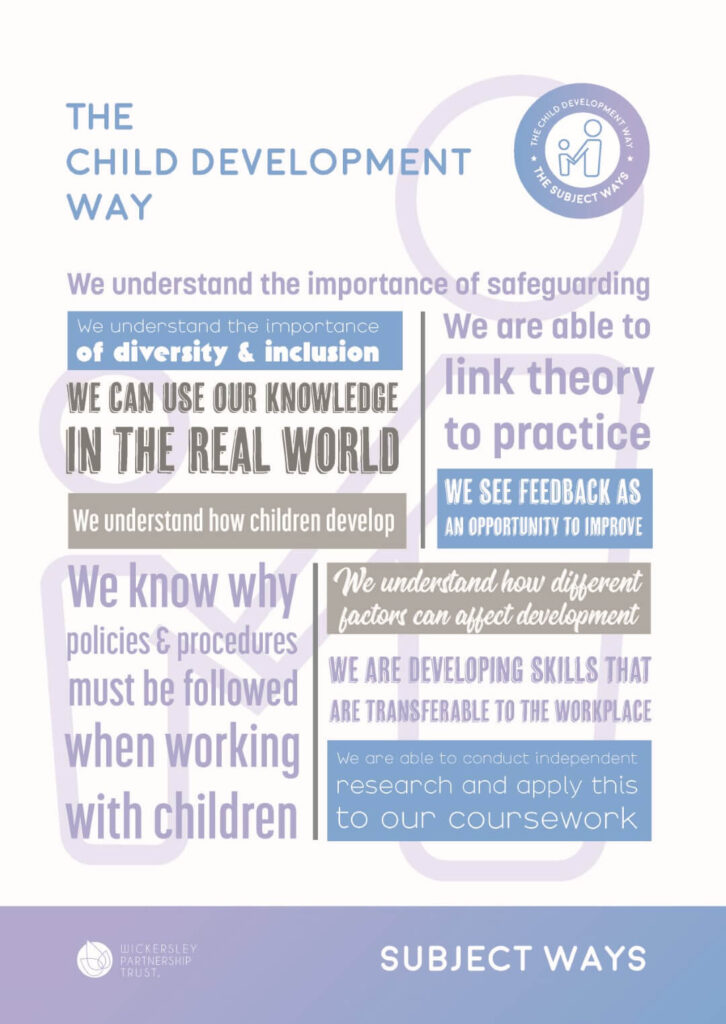Curriculum
Child Development
The Subject Way
Our subject has a ‘Subject Way’ at the heart of it. Our Subject Way is designed to help students become young subject specialists. The Subject Way has two main purposes:
Firstly, to teach students the vital skills they need to achieve their full potential and gain the very best grades they can. Secondly, to teach students how each subject relates to the wider world, incorporating the life skills they will learn.
It is our belief that knowing how what you learn links to the wider world brings a subject to life and therefore improves overall understanding and engagement.
Long Term Plans
Year 9
Year 9 is a foundation introductory year whereby Child Development is studied as part of a suite of other subjects. Students will be introduced to child development starting with conception, birth and how to care for the developing child. We will also focus on the different areas of development and how we can support the child by providing age and stage appropriate activities. Additionally we investigate different places where children can go to be cared for and educated and the typical curriculum that they will follow.
Year 10
Term 1 | Term 2 | Term 3 |
|
|
|
Year 11
Term 1 | Term 2 | Term 3 |
|
50% of the technical award NEA enables the learner to show their ability to integrate and apply knowledge, understanding and skills with breadth and depth. It also requires them to demonstrate their capability to apply knowledge, understanding and skills across all content areas that are being assessed. |
(EA) 50% of the technical award Written examination:
The written EA is a terminal assessment and will assess the learner’s knowledge and understanding of all content areas |
Department Staff
N Robinson
Find out more
If you would like more information about our curriculum, please contact the school using the details on our contact page.
Our Subjects at KS4
CORE SUBJECTS
EBACC SUBJECTS
OPTION SUBJECTS



